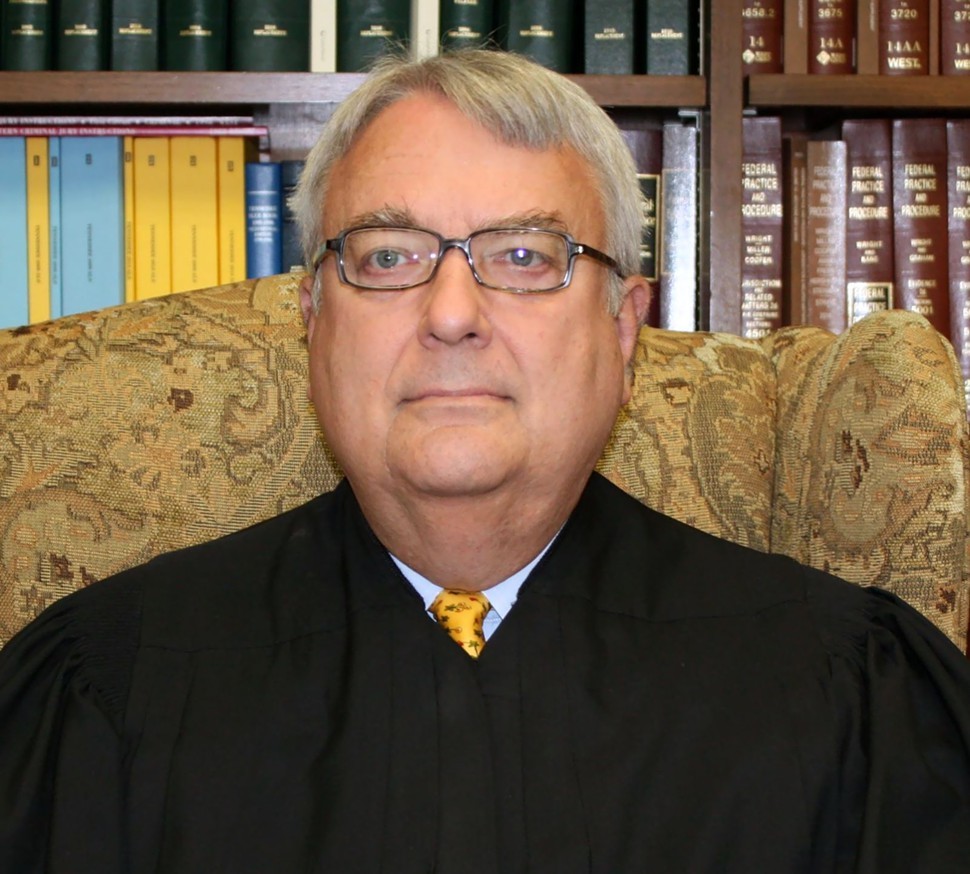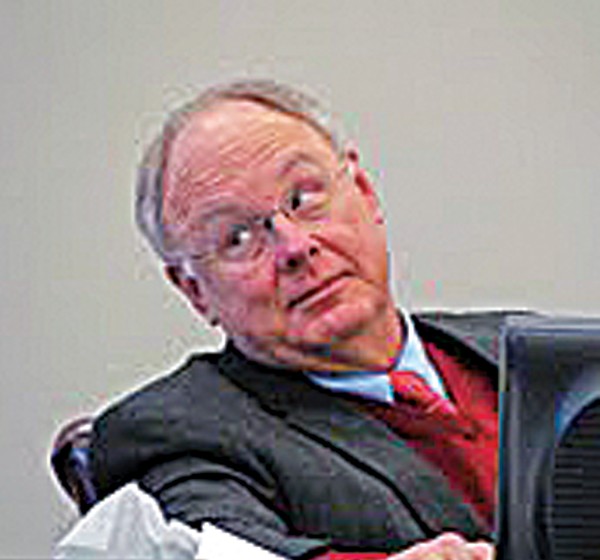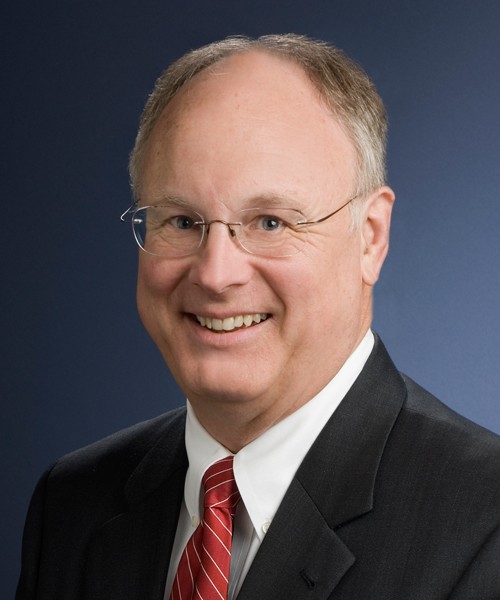After rendering his long-awaited and fateful judgment last week declaring unconstitutional 2012 legislation allowing the immediate start-up of new municipal school districts in Shelby County, U.S. district judge Hardy Mays is off on a vacation in the Caribbean, and in his absence, new suspense is building about the fate of Section 3 of Public Chapter 1 of the 2011 Tennessee General Assembly — aka Norris-Todd.
Mays has already bestowed his imprimatur on most of Norris-Todd, which established the framework for city/county school merger, but he has yet to rule on Section 3, which would enable the ultimate creation of the independent municipal districts.
Meanwhile, Shelby County’s school situation is in limbo, with only one apparent certainty — that, as of the school year beginning August 2013, there will be, for at least that year, a Unified School District in Shelby County comprising the former public schools of what had been Memphis City Schools and the former version of Shelby County Schools, which was limited to institutions outside the city limits of Memphis.
So far, all the parties involved in the ongoing controversy — which was triggered originally by the MCS board’s vote to surrender its charter in December 2010 — are biding their time, with no one certain as to what comes next.
In the course of a brief visit to Memphis last week, Governor Bill Haslam, who had signed all the relevant merger-related legislation to date, urged caution: “I want to be encouraging everybody: Let’s leave the courtroom behind, and let’s go sit down and have conversations that we need to prepare.” Not legislation. Not new legal briefs. Conversations.
Haslam’s lead was rapidly followed up by Jim Kyle, the Memphis Democrat who heads the seriously shrunken Democratic caucus in the state Senate and was narrowly reelected to that post by his colleagues last week.
In a press release Monday from his Senate office in Nashville, Kyle announced that he had asked Tennessee commissioner of education Kevin Huffman “to act as an independent, honest broker in the organizational restructure of Shelby County Schools” and claimed that he had support in that approach from his Republican opposite number, state senator Mark Norris (R-Collierville), the Senate’s majority leader and the principal author of both Norris-Todd and the follow-up legislation of 2012.
“We have seen what happens when we divide on ideology; it is unproductive. The political dynamics are what brought us to this point and will drive us back if we do not choose to act differently,” Kyle said in the press release, excerpting a portion of his letter to Huffman.
Both Norris himself and state representative Curry Todd (R-Collierville), his co-sponsor on the merger-related bills, were absent from a meeting of the Shelby County legislative delegation with local officials at the University of Memphis Monday, but Norris, while suggesting that a new round of legislation might be forthcoming in the legislative session of 2013, was so far keeping his own counsel about the nature of it.
Keith McDonald, mayor of Bartlett and for the last two years the most active spokesperson for the municipal-school concept, was at the U of M meeting and basically recapped for reporters his sentiments of last week in the wake of Mays’ ruling.
“We’re wounded, but we’re not dead,” McDonald had said then. He conceded that the ruling made municipal systems impossible for the 2013-14 school year but held out hope that Norris-Todd might still be found viable, permitting the suburbs to make a new start on municipal districts after August 2013.
“There are all kinds of creative new ideas for public education, in both the state and the nation,” McDonald said, apropos the idea of seeking alternatives to the concept of municipal school districts. “As I’ve said for two years, we’re in this for as long as it takes.”
And David Pickler, the former chairman of the Shelby County Schools board, a current member of the Unified School Board representing Germantown and Collierville, and a proponent of municipal schools, said of Mays’ ruling last week in language anticipating Haslam’s later comments, “This is certainly a delay, but not necessarily a defeat. It’s even an opportunity for all parties to the issue to engage with each other in a boardroom, not a courtroom, possibly to create a new vision that respects everybody’s rights and the principle of self-determination.”
Satisfaction was meanwhile expressed by members of the Shelby County Commission majority, chief among the plaintiffs and the architects of the Unified School District. “It looks like we got what we asked for,” said commission chairman Mike Ritz, who predicted that the suburbs would be hamstrung in getting new legislation passed. Ritz’s colleague Steve Mulroy said simply, “We won.”
If there is to be a “new vision” of the sort mentioned by Pickler, it will build upon the existing scaffolding of Sections 1 and 2 of Norris-Todd. There is a fair amount of irony in that fact.
Norris-Todd was rushed into passage at the very start of the 2011 legislative session by its suburban sponsors, ostensibly as a means of slowing down and organizing what was then a pell-mell rush toward the merger of Memphis City Schools and Shelby County Schools.
That aim was accomplished by the establishment of a merger date, August 2013, and by the bill’s creation of a 21-member Transition Planning Commission, which met for a year and made a series of recommendations on the merger, which were duly presented to an ad hoc 23-member Unified School District board.
But while most of Norris-Todd passed muster with Judge Mays in a preliminary ruling on school litigation in August 2011, Section 3 of the bill, the legislation’s trump card (and, advocates of school merger contend, its true raison d’être) is still in jeopardy.
What Section 3 does is lift, for Shelby County only, a long-standing state ban on new school districts, and it was seized upon as a way out of merger by six Shelby County suburbs — Germantown, Collierville, Bartlett, Arlington, Lakeland, and Millington. The now defunct legislation of 2012, also by Norris and Todd, was meant to allow those municipalities to begin taking the first steps toward creating new districts so as to have them ready to go by the August 2013 merger date.
That add-on measure, Public Chapter 905, was in response to an opinion by state attorney general Robert Cooper, who had ruled that no such steps could be taken until the merger date itself. This meant that, for at least the school year 2013-14, the public schools of the former Shelby County Schools system would in fact co-exist under the same umbrella as those of Memphis City Schools, whose board had voted to surrender the MCS charter in December 2010 (an act later ratified by a Memphis City Council that was no doubt anxious to escape thereby a court-ordered $68 million annual “maintenance-of-effort” payment to MCS).
Both 905 and a less-sweeping companion measure by Norris-Todd, Public Chapter 970, served to get around Cooper’s ruling and to allow the six suburbs to hold referenda in August of this year for half-cent sales-tax increases and to elect school boards in November.
Those actions were duly taken but were nullified when Mays found the two 2012 acts unconstitutional on grounds that the measures, though enacted — with what Mays called “a wink and a nod” — as general legislation, had targeted Shelby County only.
Therefore, said the judge, they had improperly circumvented the requirements for private laws in Tennessee, which must either be submitted to a referendum of all affected voters or ratified by the locality’s chief legislative body — in this case, the Shelby County Commission, chief plaintiffs against the creation of municipal schools in complicated litigation which had begun in early 2011, ironically enough, with a suit by the former SCS to halt school merger.
The conundrum facing Norris and other suburban allies in the General Assembly going forward is that there is serious resistance in the General Assembly to any legislation that would open up the Pandora’s box of new special school districts beyond Shelby County. It was that fact that caused the 2012 legislation to be written in such a way as to doom its prospects with Mays, and it is that fact which renders Section 3 of Norris-Todd vulnerable as well.
In the language of Mays’ ruling last week: “Although general in form, Public Chapter 905 is local in effect. Because it does not include a provision for local approval, Chapter 905 is VOID under Article 11, Section 9 of the Tennessee Constitution. All actions taken under the authority of Chapter 905 are VOID. The Municipalities are enjoined from proceeding under Chapter 905 to establish municipal school districts.
“The Third-Party Plaintiffs are invited to submit additional arguments, both factual and legal, addressing only the constitutionality of Chapter 970 and Section 3 of Chapter 1 under Article 11, Sections 8 and 9 of the Tennessee Constitution. Those arguments should be submitted not later than December 11, 2012, and should not include further references to legislative history. The Third-Party Defendants may respond no later than December 27, 2012.”
So it is that, two years to the month since the MCS board surrendered its charter, the plaintiffs in the ongoing suit — the Shelby County Commission, the Memphis City Council, and the city of Memphis — will make their last pitch. The municipalities will make theirs some two weeks later, on the virtual eve of a new year.
And in the month that follows, assuming that Mays provides a timely judgment, Norris, Todd, and other legislative allies of the suburbs will plan their next moves. If Mays allows Section 3 to stand, there will doubtless be legislation addressing the manner in which existing school buildings can be made over to the suburban districts, and establishing the cost of such a transaction, if any.
If Mays says no to Section 3 of Norris-Todd, however, the game is over. The plaintiffs will have won, and there will be one common educational district for the public schools of Shelby County (absent those subsumed in the new state-ordained and operated Achievement School District for failing institutions). At that point, the suburbs will have to accept merger at long last or launch some other strategy, perhaps availing themselves of the state’s aggressive new policy in encouraging charter schools.
For the time being, though, everything remains in limbo. — Jackson Baker
The Confusion Over Closing Schools
Elvis was here 60 years ago, but these days Humes Middle School is starved for students. In fact, it has the lowest occupancy of any public school in Memphis — 17 percent — which put it on the Unified School Board’s agenda last week.
The board is considering closing six schools, although the Transition Planning Commission recommended closing 21 schools, which is less than half of the schools with enrollment below 65 percent of capacity. There are 212 schools in the Memphis City Schools system and 52 schools in the Shelby County system, plus 30 charter schools for a total enrollment of about 150,000 students. The Unified School Board and the administrative staff are trying to “right size” the system under the watchful eye of parents and teachers’ union leaders who want to minimize closings.
Humes and Gordon Elementary School, another low-enrollment school in North Memphis, illustrate the hard decisions and convoluted “school reform” picture that board members are facing.
Humes Middle School is less than a mile from the heart of downtown. It borders the Uptown neighborhood of new, brightly painted houses and duplexes that replaced a crime-ridden housing project. Three nonprofit agencies — Porter-Leath, the Salvation Army, and Bridges — are heavily invested in the neighborhood. The school facility itself is in good shape, due to the massive spending on Memphis schools in the past 20 years driven by the city-county school funding formula. When the county system built a school in the fast-growing suburbs, more than twice as much money had to be spent in the city of Memphis, even though it was losing population except for annexation. This means that, whatever deficiencies they might have, low-enrollment schools are generally not blighted buildings.
“Humes would be a huge loss,” said MCS superintendent Kriner Cash at last week’s board meeting.
The plan is to “repurpose” Humes as a music and performing arts school and move its students to the Gordon Elementary School building about a mile away. Gordon Elementary School is “co-located” with a charter school in the same building. And if this is not complicated enough, Gordon is going to become one of the state-run schools in the Achievement School District (ASD) for failing schools. The definition of a “failing” school depends on which rankings, grades, and test scores are used. In the eyes of various board members, Gordon is either failing, improving, or in good standing.
The fog of jargon and data makes it hard to tell if schools are actually being closed or just being renamed while students are moved around.
The Transition Planning Commission says closing 21 schools would save about $20 million, but Cash contends the savings would only be $9.6 million. And if there are only six closings, the savings, Cash said, would be $4 million.
Gordon Elementary was built in 1939 in a North Memphis neighborhood called Smokey City. Cash said the Achievement School District had its sights set on taking over Humes because of its historical significance as Elvis Presley’s alma mater and the school’s abysmally low utilization rate. But Cash negotiated for Memphis City Schools to “close” the school and reopen it as Memphis Academy of Musical Arts & Sciences. The resulting tradeoff required turning over the entirety of Gordon Elementary and the Gordon Academy of Arts and Sciences, run by Gestalt charter schools, to the ASD. Gordon Elementary currently covers pre-K through fifth grade, while Gordon Academy of Arts and Sciences handles sixth grade.
When and if Humes Middle School closes, its seventh- and eighth-graders will be sent to Gestalt’s Gordon Academy of Arts and Sciences, which will expand to accommodate sixth through eighth grade, and eventually, Cash hopes, to pre-K through eighth grade. Gordon Elementary students will be sent to nearby Carnes and Caldwell-Guthrie elementary schools, and the Memphis City Schools-run Gordon Elementary will be closed.
This idea did not please a group of Gordon Elementary supporters, including fifth-grader Lance Armstrong, who pleaded with the board members to spare his school.
“There’s an old saying, ‘If it ain’t broke, don’t fix it,'” said Armstrong. “We are the Gordon Rockets. Let us soar and we will make you proud.”
Keith Williams, president of the Memphis Education Association, said the school is vital to the community.
“It is a community of declining population, a community racked with poverty, but Gordon is a beacon of light in that community,” he said.
School board member Stephanie Gatewood moved that each school’s closure be voted on individually instead of as a package. The board agreed to move forward with the closure process for each of the six schools after a series of community meetings, culminating in a final vote or votes in March.
Board chairman Billy Orgel concluded the meeting with a warning about the inadequacy of the $5 million the unified system is projected to save if six schools are closed.
“It’s not assured that we’re going to close these schools,” he said. “Our decision won’t come until March after thorough investigation. But if you take the $5 million and you add it back to the $57 million [gap between expenditures and revenue], we’re going to be short. There’s no money out there for public education. It’s not political. It’s not pandering. It’s reality. There’s no money.” — Hannah Sayle
Odd Couples on Unified School Board Get Along
A couple of years ago, it might have seemed like the Dinner Party from Hell. Gather the members of the Memphis and Shelby County school boards, throw in some fresh faces, bust up the alliances, and put them in a room together for hours at a time for a year or so.
At the center of the table sit superintendents Kriner Cash and John Aitken, total strangers four years ago. Nearby, county schools champion David Pickler sits next to MCS charter surrender leader Martavius Jones. As much as anyone, these two set the tone for frank but civil discussions in a series of debates and joint public appearances in 2010-2011.
The unified school system may or may not work, but the Unified School Board — by design and circumstance — has the most interesting seating chart in town. It may not lead to a world-class unified school system, but it has probably done as much consciousness raising as any public undertaking in recent history.
Other seatmates include Memphis firebrand Dr. Kenneth Whalum Jr. and Germantown schools lion Ernest Chism; Dr. Snowden Carruthers of the old county board and Tomeka Hart, co-author of the MCS charter surrender; and David Reaves, another suburbanite and one of the board’s youngest members, and, a few seats away, Sara Lewis of Smokey City in North Memphis, one of the board’s senior members. At various times during Thursday night’s board meeting, they could be seen talking amiably and smiling and laughing together.
Not to attach too much significance to this or understate differences, but things could be worse. School board is the lowest-paying part-time public job and probably the most demanding. Five-hour meetings are the norm. Members must have stamina as well as convictions. When the topic is closing schools, as it was Thursday, this is not a job for the faint of heart.
It is also old-school — the polar opposite of the internet chat room or newspaper comment section where anonymity is the rule. Board members speak, opine, disagree, and vote in public, side by side, for all to see and hear, on issues that change people’s lives.
The merger is unique in size and scale and may not last more than a year or two. Nashville, with the blessing of Mayor Karl Dean and education commissioner Kevin Huffman, is pushing for charter school expansion to the middle class over the opposition of the local school board. The state-run Achievement School District for failing schools is slated to grow in Memphis. The Republican-dominated state legislature is sympathetic to charters as are private donors such as the Gates Foundation. Vouchers have support. Most important, alternative schools have support from teachers and parents, who are the ultimate deciders.
After U.S. district judge Hardy Mays made his ruling last week nullifying suburban school board elections, the board gathered for the second time in 48 hours. It promised to be another long evening. Near the end of the discussion of school closings in North and South Memphis, a somewhat exasperated Chism, former principal at Germantown High School, protested that he was elected to represent the people of Shelby County.
The spectators gave him a small ovation. Chism voted against the closings, as did Whalum on most of the votes. — John Branston


 Jackson Baker
Jackson Baker 